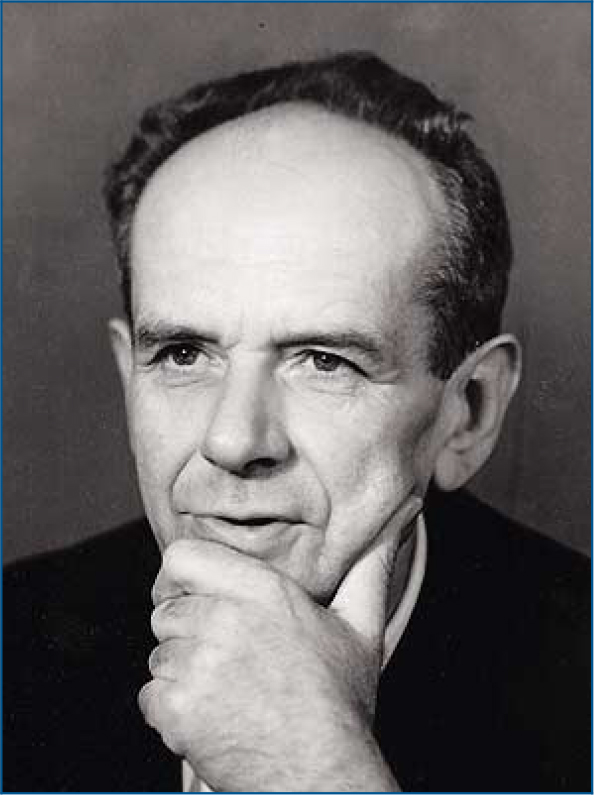
Photograph of Antoni Kępiński from the personal archive of Prof. Zdzisław Ryn. Reproduced with permission.
Antoni Ignacy Tadeusz Kępiński was born on 16 November 1918 in Dolyna (Ukraine). He studied human medicine at the Jagiellonian University in Kraków, Poland, but took a break from his studies in 1939 to enlist as a volunteer in the Polish Army. In 1940 he was imprisoned in a concentration camp. After his liberation in 1945 Kępiński continued his studies in Edinburgh, and after obtaining a PhD in Kraków completed his psychiatric education in 1959 at the London Institute of Psychiatry (Maudsley Hospital).
His experience as a prisoner in a concentration camp heavily influenced Kępiński's work. Together with the former Auschwitz prisoner Stanisław (1918–1990), Kępiński engaged in hundreds of discussions with one-time concentration camp prisoners. Drawing from his scientific work with these survivors he developed his theories on psychological disorders (Auschwitz syndrome) and his model of the psyche (information metabolism). In doing so he formulated two basic assumptions. The first assumption implies that the structural organisation of cells is similar to the human psyche. In his view, it has cell-like properties: borders, a control centre, a system for the distribution and processing of information as well as an energy source. The second assumption starts from the premise that there is a connection between the surroundings and psyche. Therefore, the psyche functions like a permeable system that interacts with its environment.
For Kępiński, an individual hierarchy of values controls information selection. This hierarchy comprises three levels: biological, emotional and socio-cultural. The first two levels happen automatically and affect decisions unconsciously, but the socio-cultural level belongs, in contrast, to human consciousness. Thus, behaviour is controlled to a certain extent by the individual's will. While processing the information that the psyche receives from either the body or the external world, preservation of the individual value system remains central. If the hierarchy of values loses its equilibrium, then this can lead to psychological disorders. This disturbed relationship between the individual and their surroundings ultimately leads to psychopathologies. In this Kępiński sees the roots of the various types of psychological and physical suffering experienced by former Auschwitz prisoners, which he summarises as the Auschwitz syndrome. He described the basic characteristics and symptoms of what DSM-5 now refers to as ‘trauma- and stressor-related disorders’.
Kępiński died in 1972 in Kraków. In his lifetime, his scientific work was barely recognised on an international level because of Poland's isolation until 1989/1990.



eLetters
No eLetters have been published for this article.